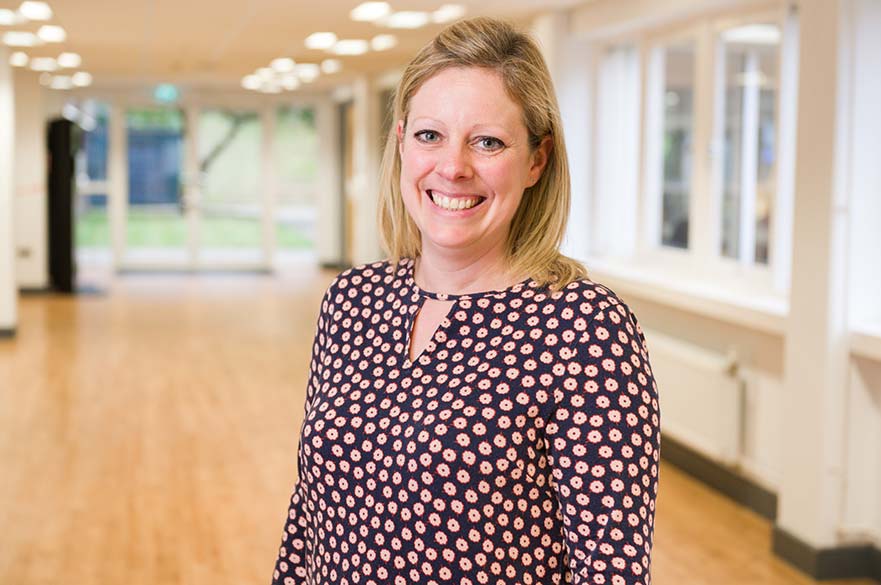Dr Gayle Dillon — Flexible Working
Learn about Dr Gayle Dillion's experience undertaking Flexible Work whilst acting as Deputy Head for the Department of Psychology.
Hear Gayle's story

Gayle has children at a primary school that does not have childcare facilities outside of school hours. She uses flexible working to accommodate this, in conjunction with her husband. Gayle has been working flexibly for six years at Nottingham Trent University. The flexible working arrangement has been very important for helping the children settle into the school and maintain a consistent routine around school life. It allows for time to be with the children and deal with the logistics of family life.
When Gayle first approached her Head of Department six years ago she found that he was supportive and wanted to find the best balance for Gayle and her family. This meant Gayle felt trusted that she would continue to do a good job and fulfil her role in the department as she always had. Her current manager has continued this flexibility and been hugely supportive, and Gayle feels strongly that this has led to a valued working relationship. This flexibility goes both ways, and Gayle reciprocates when her role requires trips away from the University for key meetings and events.
Transparency is key. Gayle feels that as long as people know when you are available and when you will be in the office then they will work with you. What’s also important is striking that balance between different working practices and understanding people’s differing work hours and patterns.
Gayle feels Nottingham Trent University is a progressive employer and that colleagues are genuinely accommodating of that, which leads to good staff retention. Inclusivity is a really important part of the culture and something that the department discusses with staff and students. There have been a growing number of appointments at higher levels within the University of people working part-time and flexibly, and Gayle feels that it is a reflection that the perception of academics working part-time is changing.
Part-time colleagues are just as ambitious as full-time colleagues and want to develop their careers. The advancement of part-time workers into more senior roles shows that Nottingham Trent University values them and sets a great example to junior members of staff. “It shows that it works.”
People become used to your working patterns. A few years ago flexible working wasn’t that common. It is now more so and acceptable, and people often don’t think about it once they realise that the job is being done.
Dr Gayle Dillon